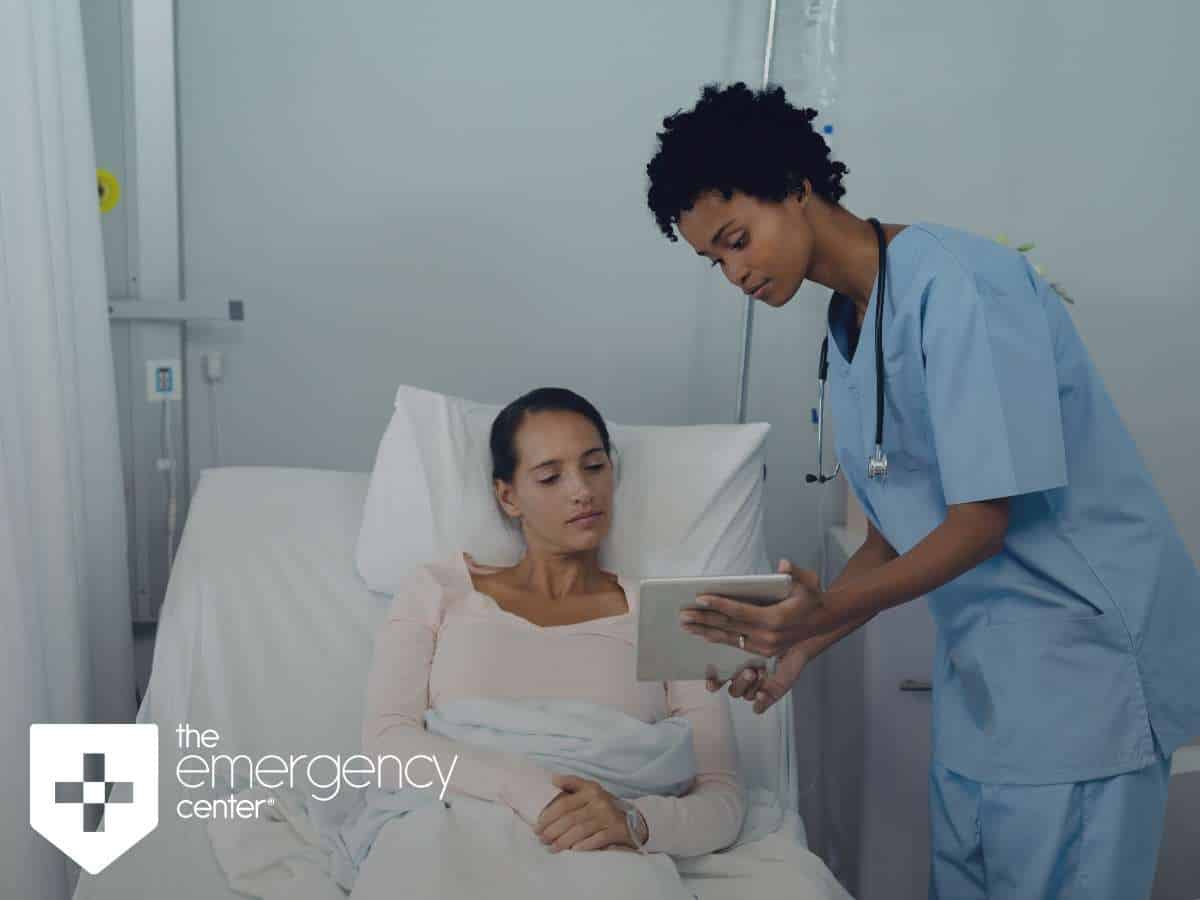There are virtually an unlimited number of illnesses and injuries, each with their own signs, symptoms, and potential treatments. What’s the one thing they all have in common? The sooner they are addressed by medical professionals, the greater the chance for effective treatment and a faster return to better health.
Unfortunately, too often people opt to either take a wait-and-see approach to a medical issue or just try to “tough it out” instead. This can be a potentially life-altering mistake, especially when fast, high-quality care is available close by at The Emergency Center.

Many illnesses begin with mild symptoms—a cough, a low-grade fever, or mild aches. While initially addressing these types of symptoms at home may be reasonable, if they persist or get worse, it’s time to get it checked out rather than wait it out, as they may be a sign of something more serious.
Having an emergency illness addressed quickly can not only shorten the road to recovery but potentially be less costly in the long run.
Similarly, promptly seeking care for injuries is vital to avoid future complications and costs. For instance, broken bones or damaged joints that aren’t properly diagnosed and cared for immediately may not heal properly. This can mean either permanent impairment or an expensive surgical procedure and a lengthy rehabilitation process to correct in the future.
Some patients delay care because they may not view the symptoms they are experiencing as an emergency or want to try treating them at home first. However, there are certain symptoms for which everyone should seek immediate medical attention.
These symptoms may indicate a life-threatening emergency or may lead to serious long-term health consequences if not cared for promptly. Trying to take care of these symptoms at home or wait them out wastes critical time.
Recent data suggests that some people are putting off medical care—including care for medical emergencies—due to the COVID-19 pandemic. That’s also a mistake.
Keep in mind that medical facilities capable of providing advanced care such as The Emergency Center always remain prepared to safely care for patients with contagious illnesses. In light of the global pandemic, these preparations have been taken to a new level with additional processes and equipment needed to protect everyone and keep COVID-19 from spreading.
There are few things in life more important than good health. That’s why getting you and your family’s unplanned medical needs met quickly at The Emergency Center should stay at the top of the to-do list.
The Emergency Center
San Antonio
11320 Alamo Ranch Pkwy
San Antonio, TX 78253
Phone: 210-485-3644
Conroe
4019 I-45 N,
Conroe, Texas 77304
Phone: 936-247-9457
Is your nausea more than just an upset stomach? Learn about the causes of nausea…
Experiencing numbness or tingling? Discover the causes and know when to seek emergency care for…
Experiencing abdominal pain? Learn what it could mean by location and when to visit the…
Is your skin redness a sign of something serious? Learn about different types of skin…
Why are ER wait times so long? An emergency room physician explains key delays and…
Are you aware of the dangers of carbon monoxide? Learn prevention tips, symptoms, and how…